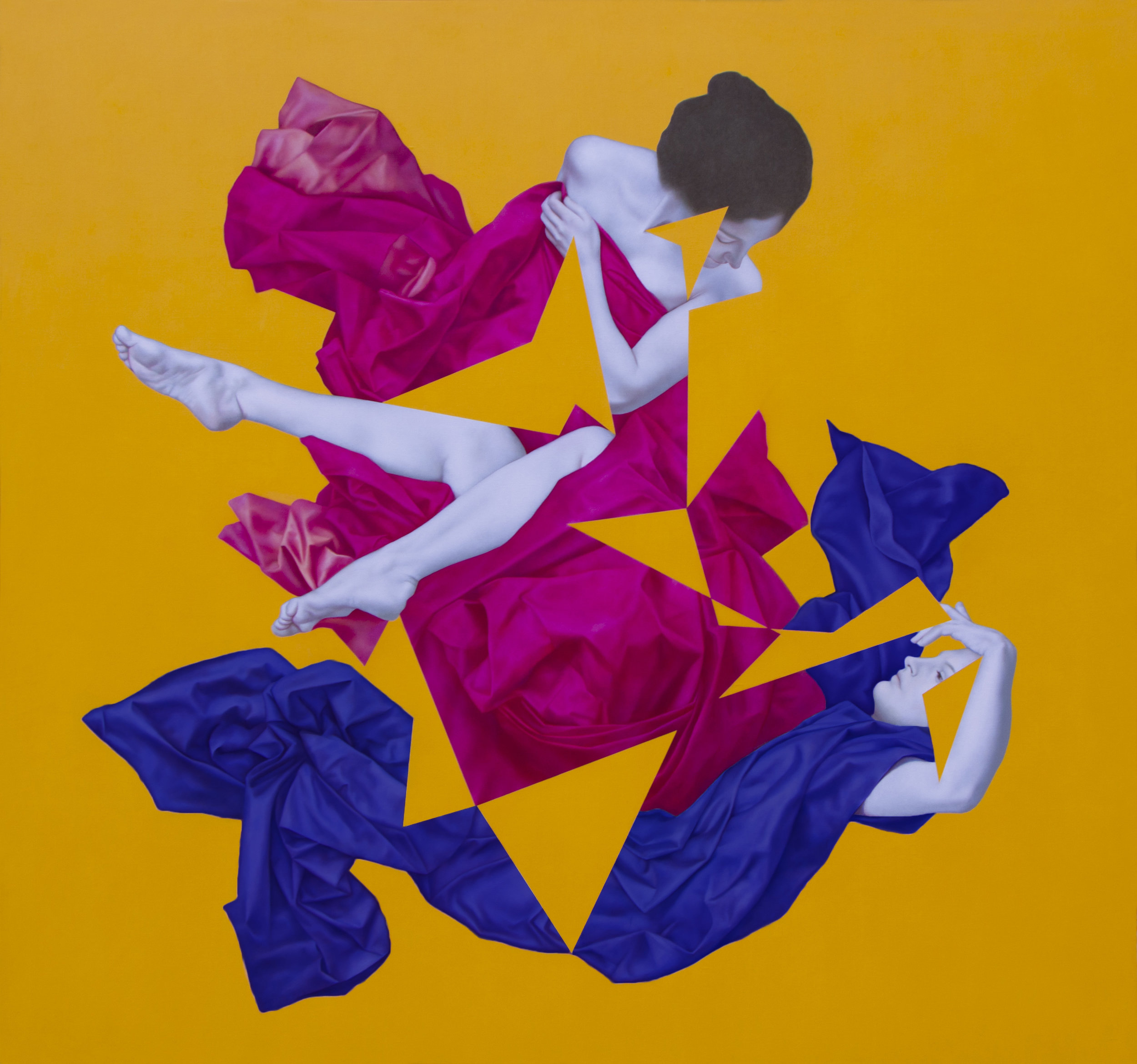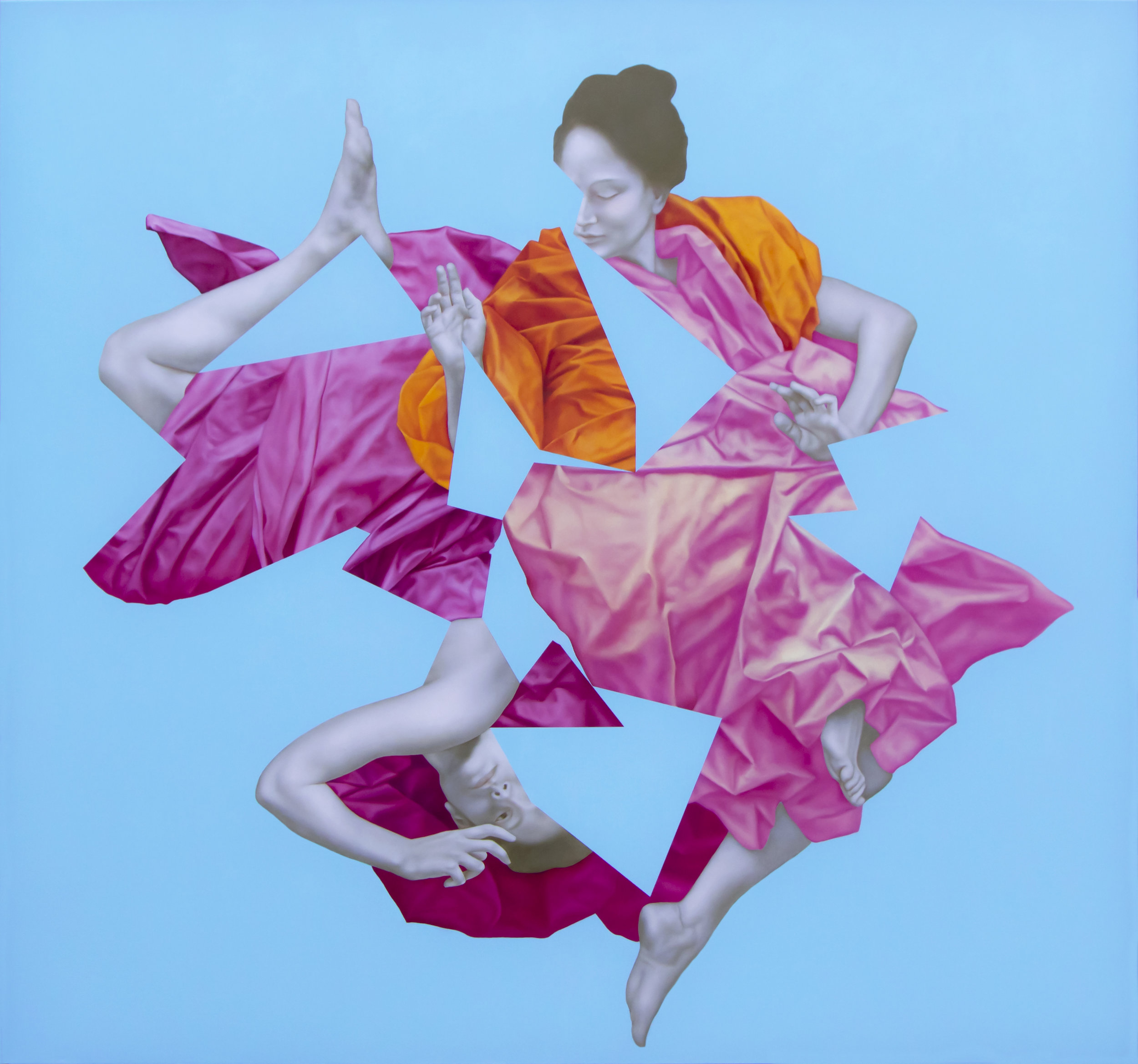Demagogues (2017)


Demagogues
Cleon and Thucydides & The Babylonians and the Knights
“Disaster has been my teacher. Now if you deem yourself and the army that you lead to be immortal, it is not for me to give you advice; but if you know that you and those whom you rule are but men, then I must first teach you this: men’s fortunes are on a wheel, which in its turning suffers not the same man to prosper for ever.”
Herodotus, The Persian Wars, Book I
The rise of nationalism and the demagogues who characterise it lie behind two new works by Juliette Mahieux Bartoli, Cleon and Thucydides and The Babylonions and The Knights. These events impact a practice centred on intercultural identity and the strength that cultural exchanges provide. Mahieux Bartoli has used fractured figures to represent individuals from multiple cultural backgrounds in past work. In these pieces the characters play out the natural tension between them and the context of the rise of nationalism.
As in previous work, the classical realm brings context to the two new pieces through their titles. Here it reminds us that demagogues are nothing new; it presents a parallel observation of the political phenomenon and the reassurance of cyclical continuity.
The paintings reference Cleon, a leader of Athens in the 5th c BCE, as the archetypal Demagogue in conflict with the forces of History and Art. The historian Thucydides and the playwright Aristophanes were two of his foremost opponents. The historian insured an unforgiving portrayal of the populist leader for posterity; the playwright presented a satyrical force that was not to be quieted. Cleon had Aristophanes prosecuted for his play The Babylonians which attacked the demagogue; Aristophanes responded by writing another satyrical play, The Knights, continuing his mockery of Cleon.
History allows a distancing from the present, and therefore a clarity of observation. Art brings balance through a lyrical view of overwhelming events. The compositions tumble in the chaos of today’s circumstances, but they also dance finding harmony in the turmoil. Cleon and Thucydides and The Babylonians and The Knights acknowledge the cyclical nature of events, promising the wheel will turn again.